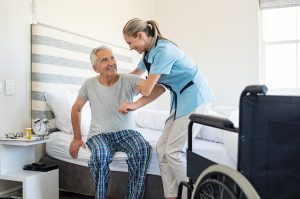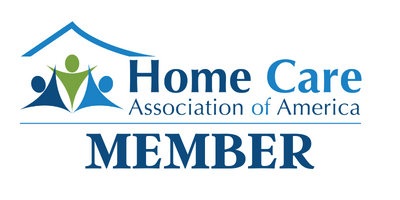Who wouldn’t prefer to recover in the comfort of their own home after surgery?! In many cases, that is very possible – if you make some plans ahead of time to have the support you will need to ensure that your transition back to living at home will go smoothly and safely.
Planning for Your Home Care
You can make your recovery at home go a lot smoother if you take the time to plan ahead, ask some questions prior to your surgery, and find the resources you will need to help you in your recovery. Ask your doctor what you won’t be able to do at first while you’re healing up, what the typical progression of healing is, and get help from friends and family to prepare your living space for your arrival after surgery.
Preparing Your Home After Surgery
How many changes you may need to make in your home depends largely on what type of operation you are having, and what your recuperation needs will be. If you are having something complicated such as a joint replacement or heart surgery, you may need to tweak a few things. Managing stairs and entrances/exits are usually a big challenge for those recovering from surgeries. Consider what you need to do to make moving around your home safe. For instance, if your bedroom is upstairs and you won’t be able to climb stairs safely after surgery, you might want to make sleeping accommodations on the first floor for a while. Get some help moving a bed downstairs or look into renting a hospital bed to use temporarily. You might benefit from installing additional grab bars and railings at your home.
Some types of surgery will require you to have special gear at home. Again, check with your doctor ahead of time to determine if you will need shower and toilet assistance from equipment such as chairs and lifts, oxygen tanks, or other home medical equipment. Remember to get in touch with your insurance company to see what might be covered in your policy.
Tips to Prepare Your Home for a Safe Recovery:
- Sleep on the first floor.
- Install additional railings and grab bars.
- Make sure entrances and stairways are safe.
- Remove throw rugs and clutter.
- Add lighting and night lights.
- Rent necessary equipment before surgery.
The last thing you would want is to have a fall set back all your recovery! Take the time to consider what changes will make your home a safe place.
Cover Your Nutritional Requirements
After some surgeries, doctors recommend special diets or additional dietary supplements. Ask about what diet you should maintain, and stock your pantry ahead of time. Since you may feel extra tired during your recovery, along with possibly having limited mobility, prepare some meals before your operation and put them in the freezer.
Additional Tips for Staying Safe at Home
You should be extra careful about falling or slipping after an operation. Even if you are not having a surgery that limits your mobility such as a hip replacement, you will still have limited physical strength and flexibility. Dizziness is a common issue following surgery. Spending long hours laying down, missed meals, and medications all contribute to dizziness and lack of depth perception.
Here are some tips to avoid stumbling:
- Sleep in a bedroom near a bathroom.
- Sleep on the lower level if necessary.
- Place night lights in hallways.
- Get rid of the clutter in your home.
- Use a walker, scooter or crutches to support your balance.
- Wear flat shoes or slippers with gripper soles.
Bring in Professional Care Services to Help
Don’t under estimate that surgery is a big deal! Your energy may be sapped for days, or even weeks afterward. You need to allow yourself and your body the time and care to heal properly. In addition to the help you receive from family and friends, it may make a lot of sense to get some assistance from professional health and homecare services.
The considerable value in professional after-surgery care experts is that they know the right questions to ask your discharge planner, nurse or surgical coordinator, so they can create a personalized care plan that meets all your needs. You can go home with the comfort that you will have the help and support you will require, and you won’t have to lean on family or friends who are less qualified.
Make arrangements in advance if your surgeon suggests getting a nurse, physical therapist, or health aide. There are also services that help with home and personal care needs such as housekeeping, meal preparation, transportation and errands. You can get recommendations from your friends, doctor, hospital’s home care department, or insurance company. Make sure you schedule the first visit with any healthcare assistance before you leave the hospital.
Arcadia’s After Surgery Care Services
Our team is ready to help your recover comfortably in your home, and our personalized services are designed just for your needs. We’re here to meet a number of post-surgery care needs from medical care to home and personal care assistance, so you can focus on your recovery. We are here for you through every step of the discharge-to-home process, and we strive to provide first-rate care during your recovery.
Our caregivers can assist with:
- Following discharge orders
- Transportation to your home and your appointments
- Prescription pickup, grocery shopping, and other errands
- Medication reminders
- Meal preparation and light housekeeping
- Communication with healthcare providers and loved ones
With Arcadia , you can feel confident that there is a plan in place to help you or your loved one make the after-surgery care transition successfully.
Have questions about after-surgery care? Don’t hesitate to reach out to our experienced team! Call (207) 347-2377 or contact us online.


